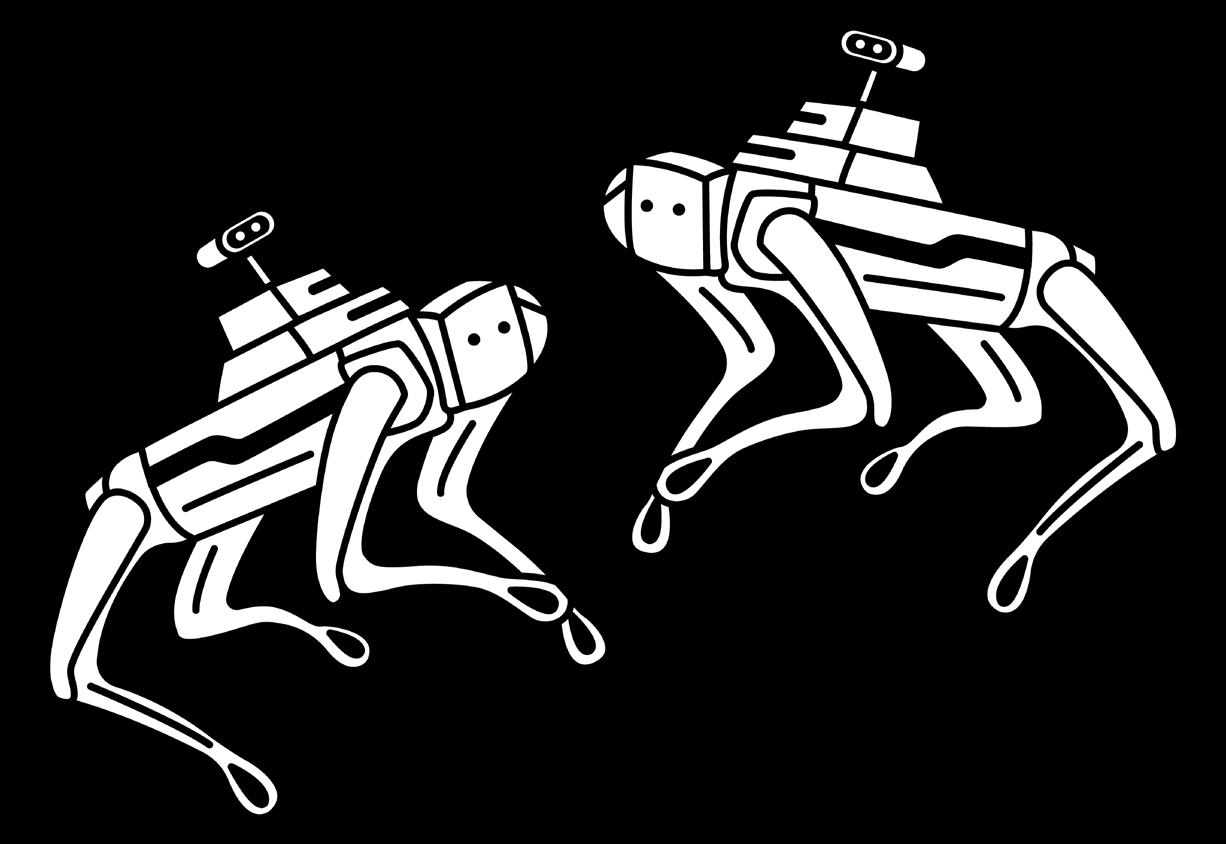Literary Pioneers Education Kit
For 13 years old and up www.singaporewritersfestival.com

For 13 years old and up www.singaporewritersfestival.com
“Bukan mungkin lagi, mesti!”: Penulis-penulis Perintis Wanita Melayu Membalas Balik “Not an if but a must!”: Responses from Pioneering Malay Female Writers
What does resistance woven through generations of Malay women writers look like? All across the Nusantara, women are speaking back – as they have always done. Their responses weave through Riau’s 19th century literary renaissance, to the anti-colonial fight for Malayan independence, to the current of everyday relations and spirituality.
Celebrate literary pioneers like Raja Aisyah Sulaiman, Adibah Amin, Associate Professor (A/P) Hadijah Rahmat, Sa’eda Buang, Rasiah Halil and Kumpulan Bebas Melata, who take the admonition of ‘jangan menjawab!’’ (don’t respond!) wielded against women, and instead braid comebacks through their literary contributions. It is not if they resist. The cumulative force of their critiques, poetry and anthologies proves that compliance is simply not an option.
This

is designed for deeper engagement and discussion with the Singapore Writers Festival (SWF) Literary Pioneers exhibition. Divided into 3 sections, it comes with guiding questions, suggested activities and links for further exploration on the subject and themes presented:

Raja Aisyah Sulaiman was a prominent Malay female writer in the 19th to 20th century. Born in 1869/70 at Penyengat Island, Riau, Raja Aisyah Sulaiman was a descendent of Bugis aristocracy, and she was also the granddaughter of Raja Ali Haji, a notable intellectual figure in Riau.
A female writer ahead of her time
Raja Aisyah Sulaiman was a writer ahead of her time for showing alternative viewpoints that defended women’s voices and rights in the largely patriarchal society that she was living in.
Below is an excerpt from Syair Khadamuddin, a traditional Malay poem published in 1926:
“Kami ini seorang merdeka
Daripada kamu itu belaka Kami barang di dalam kawalan Bukan sekali bangsa jualan Atau kececeran sepanjang jalan Boleh diambil masuk pikulan”
We are free and independent
From of all you men
Although you treat us like controlled items But we are not to be sold or auctioned Nor are we commodities you see on the sidewalk That you could take and put in your bags
Translated to English by Liyana Nasyita
What could have been going through Raja Aisyah Sulaiman’s mind in the above excerpt from Syair Khadamuddin? What insights do you think her readers will gain from this?
Put yourself in the shoes of someone growing up during Raja Aisyah Sulaiman’s time, and imagine living in a society where your voice and opinions are often dismissed and not considered important.
What are some ways you would try to make yourself heard and understood?
We have learned earlier that Raja Aisyah Sulaiman’s ancestry was Bugis and she was born in the Riau islands. Here are some interesting resources for you to find out more about the Bugis and the Riau islands:



What have you learned about the Riau islands and the Bugis community, and how are they connected to Singapore? Share your thoughts here:
Now that you have understood more about the Bugis community and the Riau islands in relation to Singapore’s history, have a discussion with your friends about how this helps you understand Singapore and her people better.
In what ways do you think this information helps you better understand yourself as a Singaporean?
Adibah Amin is a writer and thinker who emerged against the backdrop of the struggle for independence in Malaya in the 1950s. Born in 1936 in Johor, Malaysia, Adibah Amin was the daughter of Zainon Sulaiman (1903 – 1989), also known as Ibu Zain, a prominent female figure in Malaysia who fought for women’s rights, education and was part of the independence movement in Malaya.
Adibah Amin believes in equality amongst humankind, and her love for her nation and concern towards social issues such as social cohesion, women’s rights, and education can be seen clearly in her works which are widely read and circulated.
Her English novel, This End of the Rainbow (2006), is a story based on her own memories as a student while studying at the University of Malaya in Singapore:
Do a little research to find out more about This End of the Rainbow:
1. What is this story about?
2. What are the main issues explored in this story?
3. If you could summarise the story to your friends, what would you tell them?
Create a visual collage of This End of the Rainbow based on what you have found.
Use pictures from magazines, the internet or even headlines and text from newspapers.
Share with your friends your collage and see if they are able to tell what the novel is about from what they see!
Now that you have understood a little more about Adibah Amin’s point of view regarding social issues, what are some of the social issues that you are feel are important to you, in this present day and age?
How do these issues affect you personally, as well as others around you?
Adibah Amin’s novel, This End of the Rainbow, explored the complex challenges that came along with the independence movement in Malaya (now Malaysia) and Singapore back in the 1950s.
Let’s try to better understand the conflicts leading up to Singapore’s eventual independence in 1965:
1963 - 1965 Tensions of Merger
9 August 1965 — Singapore is Fully Independent
We can imagine how people who lived through the period of merger and independence had to overcome much instability and uncertainty because of the significant changes happening around them.
How do you think the political and social changes affected the lives of people living in Malaysia and Singapore back then? How does that make you feel about your life today?
More recently, Singapore (and the world) had to go through a period of great change when the COVID-19 pandemic broke out in 2019. Take a look at this speech about adapting to the new normal:



Senior Minister
Teo Chee Hean: Resilience in a changing external environment
What do you think are some of the key traits or values required to for a community to be resilient in the face of challenges and change?
How can you demonstrate these in your everyday life?
Associate Professor (A/P) Hadijah Rahmat, Sa’eda Buang and Rasiah Halil are writers who draw on their academic training and experience to explore topics such as values, social, cultural and political issues centred around the community in their writing.
In an excerpt from her poem, Potret Pembangunan (Portrait of Development) (2000), which centres around the demolition of a kampung as part of a resettlement project, A/P Hadijah Rahmat wrote:
“Aku tidak mahu jadi seorang perindu meratap sebuah permegian kehadiran yang hilang. Seperti sang serangga dan tumbuhtumbuhan aku pun akan menyesuai diri, menguasai sekitaran menerima hakikat perubahan”
I don’t want to be merely reminiscing dreading a loss a presence that has diminished. Like the insect and the plants I, too, must adapt and take charge of my circumstances accepting change.
Translated to English by Liyana Nasyita
While the loss of a kampung is deeply felt here, it is also suggested that a community should be adaptable to changes happening around them so as to look ahead and progress.
Think of a time when you had to cope with changes happening around you. What were some ways in which you managed to adapt to these new changes and move forward?
In Sa’eda Buang’s short story Razi, written in 2021, she highlighted the struggles that Razi - an autistic child - and his mother Nani face as they go about in their everyday life, capturing the challenges they experienced in the society that they live in.
For example, in the following excerpt from the story, a taxi driver had commented on Razi’s behaviour during the ride:
“What does he want? Can you ask him to sit on the left?”
We have been treated with the same harsh stare a thousand times before.
“He is jumping and wriggling about. I can’t drive mah!”
What impact do you think the taxi driver’s words has on Razi and his mother Nani? Are there any examples you can think of where people in your community face challenges and struggles while going through their everyday life? Share your thoughts here.
In the poem Monolog Pemandu Teksi (The Taxi Driver’s Monologue) (2013), Rasiah Halil gives a voice to the lower classes in society who struggle to make ends meet:
“Siapa nak duduk-duduk saja, cik? Semua mesti bayar. Anak bini nak makan. Siapa nak kasi duit? Takkanlah saya nak tadah tangan. Susah betul, cik, duit tak ada, langkah pendek, terseksa”
Who would want to just sit around, Miss? Everything needs to be paid for. Our family needs to eat. Who will provide the money? I can’t be begging for help. It’s so difficult, Miss. No money, no opportunities, only suffering.
Translated to English by Rasiah Halil
Here, she showed the challenges that blue-collar workers in society face, when they have to work doubly hard to survive each day.
How do you think life is like for families in Singapore who need help – what kind of challenges do you think they face?
Don’t Call Us Poor

Kumpulan Bebas Melata (The Free and Dispersed Group) is group of writers led by Rohani Din consisting of Kamaria Buang, Faridah Taib, Nordita Taib and Khaziah Yem.
The works by Kumpulan Bebas Melata reflect the concerns of working-class Malay women, and are often personal reflections of life struggles and relationships, in which their readers can identify with and relate to.
In the works by Rohani Din and Khaziah Yem, a common theme explored is that of their personal struggles as a woman and a mother.
In Diari Bonda 4 (2004), Rohani Din wrote about the responsibility of a woman as a mother in raising children, taking care of a sick husband and having to fulfil house chores at the same time:
“Aku tidak endahkan lagi pinggan mangkuk di dalam singki. Biarkan sampai esok pagi. Kalau aku memasak, aku akan tambah lagi…Biarkan sesiapa yang ada di rumah berasa sakit hati dan matanya sebagaimana yang aku rasakan selama ini. Sesungguhnya aku merasakan seperti pembantu rumah tidak bergaji”
I did not care about the dishes in the sink. I will let them sit there until tomorrow morning. After I cook, I will add the dishes I have used into the sink. Let the people in this house feel what I have been feeling. Let them be annoyed. I truly feel like I am treated like a domestic helper without a salary.
Translated to English by Liyana Nasyita
Think about some of personal struggles that the women in your life face –what might they be, and how do you think you can help?
The writings of Kumpulan Bebas Melata also shows a strong love for Singapore and being Singaporean. Singapore, being the home of the writers, is a place in which they would like to protect and encourage people to love.
For example, in an excerpt from Kamaria Buang’s poem, Tanah, di Sini Aku Bersemadi (My Land, Where I Belong) (2016), she wrote:
“Tanah ini anugerah buat kita buat menggali harta untuk anak cucu bakal dewasa suara-suara mesra bakal membangun nusa dan bangsa”
This land is a gift for us where we make riches for our offsprings following us the cheerful voices who will build our nation and races.
Translated to English by Liyana Nasyita
If you were to write a poem titled, My Land, Where I Belong, what will it be? Use the above excerpt from Kamaria Buang’s poem as an inspiration and create your own poem below with the same title:
My Land, Where I Belong
Take some time to walk around the exhibition and take in the information presented in the exhibition.
What are some interesting takeaways that you gained from these literary pioneers and their work? Jot down your thoughts here:
Spend some time to think and reflect on the following questions:
1. Think about the circumstances surrounding Raja Aisyah Sulaiman and the fall of the Riau-Lingga Sultanate:
• How would you feel if you have to escape your country due to political instability, or if you are a new immigrant in a country? What are some of the challenges you think you might encounter?
• How does this make you see yourself where you are living, right now?
2. Adibah Amin recognises that each individual is unique and different, and respecting these differences is important in achieving social harmony:
• What do you think will happen if values such as respect, care and harmony are missing in society? How would that affect you as a member of society?
• In what ways can we practice social responsibility towards each other?
3. For Rasiah Halil, A/P Hadijah Rahmat and Sa’eda Buang, their works often reflect the complexity of society and the communities within it:
• Who do you think are the people who are left out and marginalised in society, and how do you think they can be helped?
• What agent of change would you like to be and why?
4. Kumpulan Bebas Melata’s works are relatable because they reflect real life experiences and observations:
• What are some of your observations and experiences that you would like to record and share with others?
• How would you like to express these observations and experiences?
Now, get together with your friends and discuss the following:
1. Which literary pioneer/s made the deepest impression on you, and why?
2. What are the objectives and goals that you think each of these literary pioneers wants to achieve, through their writing?
3. What do you think are some of the challenges that these literary pioneers have to overcome, in order to achieve these objectives? How do you think they managed to rise above these challenges?
4. If you were to share with someone an inspirational message from what you have seen at the exhibition, what would that be?
Now that you have seen and understood how expression of thoughts and ideas can be done through writing, what are some thoughts or ideas that you have, that you feel is important to express and share with others?
Try your hand at expressing those thoughts and ideas by crafting your own short story or poem, and think about how you would like to present what you have written as creatively as possible – it could be a short-form video of your written work, a visual expression, or even a performance!
Use the following guide to help you brainstorm and plan your expression:
1. Think of a topic, an issue or a concern that is important to you, and that more people should know about.
2. Why is it important for people to know this? In what ways can knowledge about this help benefit others?
3. What genre or format would be best to express your ideas in written form? What would your final creative expression be like?
Be as creative as you want, and have fun at it!

Turn back time, ponder the present and imagine the endless possibilities that the future holds at the Singapore Writers Festival (SWF) 2022. The region’s premier multi-lingual literary arts festival celebrates its 25th edition this year from 4 to 20 November. SWF 2022 invites you to reflect on its legacy and imagine exciting new futures with the provocation of our Festival theme, ‘IF’.
Join us at more than 200 programmes over three Festival weekends. From Festival favourites to unexpected new offerings, there is something for everyone of all ages in this year’s exciting line-up that spans immersive experiences, exhibitions, performances, film screenings, meetthe-author sessions and conversations.
Gain access to all programmes at SWF 2022 with the purchase of our Festival Pass or SWF Youth Pass.
